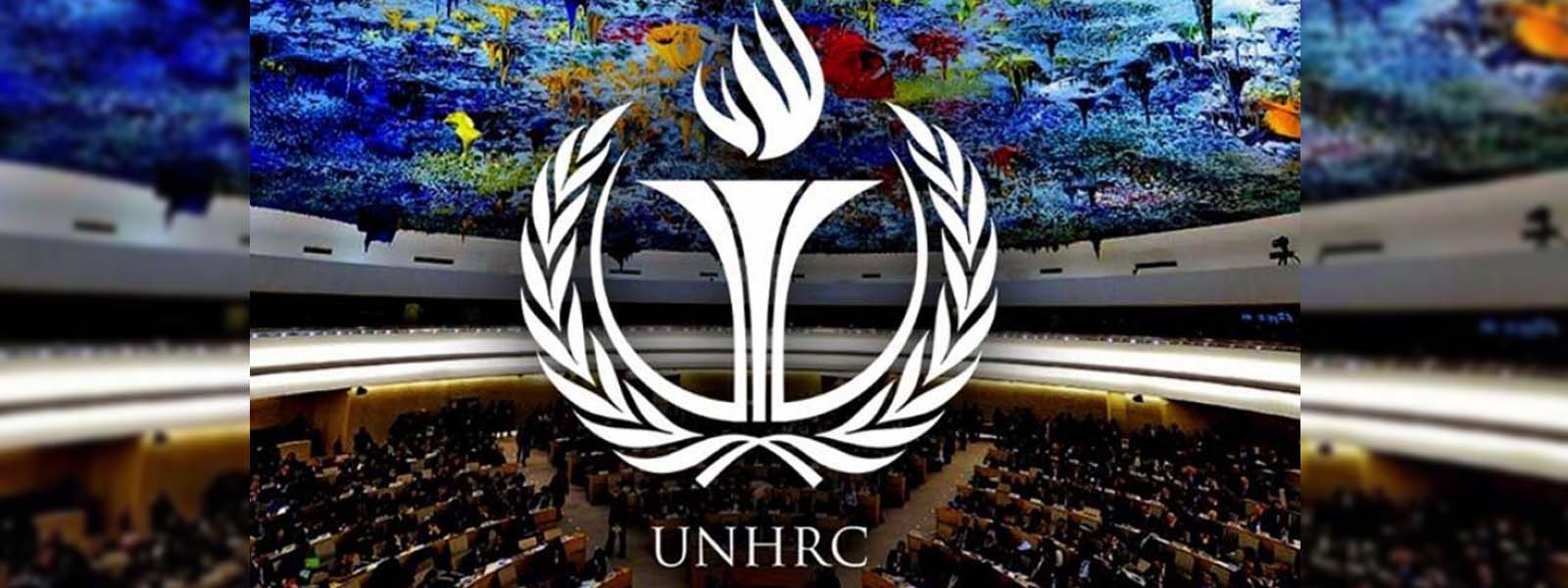.webp)

OHCHR calls for Sri Lanka to accede to the Rome Statute
Colombo (News1st) - The Report of the Office of the UN High Commissioner for Human Rights on Sri Lanka titled "Promoting reconciliation, accountability and human rights in Sri Lanka" has been released. In it the Office of the High Commissioner for Human Rights (OHCHR) calls for Sri Lanka to accede to the Rome Statute of the International Criminal Court and also calls on the creation of a Hybrid court to investigate allegations of violations and abuses of international human rights law and violations of international humanitarian law.
The report notes that the lack of decisive steps to address the past in order to build a future, grounded in accountability, respect for human rights and the rule of law, as well as the failure to communicate it's actions, has generated widespread frustration. The OHCHR believes that the lack of accountability for past actions likely contributed to the return of violence against minorities in March 2018, and played a role in undermining the principles of democracy and the rule of law in October and November 2018.
The High Commissioner however notes that there has been constructive engagement by the Government with OHCHR and United Nations human rights mechanisms since January 2015 adding that it has made progress in human rights issues and its engagement with civil society in some areas. However, the report notes that progress in its commitments to transitional justice has been inconsistent and subject to considerable delay, partly because of the lack of a time-bound comprehensive strategy.
The UN High Commissioner for Human Rights believes that the lack of progress by Sri Lanka shows that the situation of human rights in Sri Lanka should remain firmly on the agenda of the Human Rights Council and urges the UNHRC to remain closely engaged with the Government of Sri Lanka and to continue to monitor developments in the country.
The report by the OHCHR has also issued a number of recommendations for the GOSL on a number of topics.
- Implement the recommendations made in the report of the Consultation Task Force on Reconciliation Mechanisms to frame and guide all future transitional justice processes, and to continue engagement with the public in the design of such mechanisms.
- Prepare a comprehensive strategy on transitional justice, with a timebound plan to implement the pending commitments
- Invite OHCHR to establish a full-fledged country office to monitor the situation of human rights in Sri Lanka, to advise on the implementation of the recommendations
- Invite the Special Rapporteur on truth, justice, reparations and guarantees of non-recurrence, the Special Rapporteur on torture and other cruel, inhuman or degrading treatment or punishment, the Special Representative of the Secretary-General on Sexual Violence in Conflict to visit Sri Lanka and to provide expert advice, including on relevant reforms
INSTITUTIONAL REFORMS
- Publicly issue unequivocal instructions to all branches of the military, intelligence, and police forces that torture, sexual violence and other human rights violations are prohibited, and will be investigated and punished, and order all security forces to immediately end all forms of surveillance and harassment of and reprisals against human rights defenders and victims of human rights violations.
- Develop a full-fledged vetting process, in order to remove from office security personnel and other public officials involved in human rights violations. Apply stringent screening procedures for units and individuals applying to serve in United Nations peace operations.
- Establish an independent mechanism to determine specific cases in which land must be allocated for military use owing to security reasons.
- Support the Human Rights Commission, including review of and advice on draft legislation, and its role as a national preventive mechanism.
- Support the independent commissions, fully respect their independence, and take into account their recommendations.
LEGISLATION AND JUSTICE
- Accede to the additional protocols to the Geneva Conventions and to the Rome Statute of the International Criminal Court.
- Enact legislation to criminalize war crimes, crimes against humanity, genocide and enforced disappearances without statutes of limitation, and enact internationally recognized modes of criminal liability, in particular with regard to command or superior responsibility.
- Adopt legislation establishing a hybrid court to investigate allegations of violations and abuses of international human rights law and violations of international humanitarian law.
- Review the Assistance to and Protection of Victims of Crime and Witnesses Act.
- Strengthen the forensic capacity of the police and judiciary
- Replace the Prevention of Terrorism Act with legislation that adheres to the best international practices
- Review all cases of detainees held under the Prevention of Terrorism Act with the aim of either releasing them or bringing them immediately to trial
- Promptly investigate and prosecute all allegations of torture and other gross human rights violations.
TRUTH AND RIGHT TO KNOW
- Design, enact and operationalize a truth-seeking mechanism that has appropriate linkages to other transitional justice components.
- Provide the Office on Missing Persons with sufficient resources and technical means to effectively fulfill its mandate.
REPARATIONS
- Provide the Office for Reparations with the resources and technical means necessary to implement its mandate
- Through the Office for Reparations, develop a national reparations policy
Other Articles
Featured News





.png )

-797936_550x300.jpg)

-793492-797918_550x300.jpg)
-797911_550x300.jpg)






-797273_550x300.jpg)


















.gif)